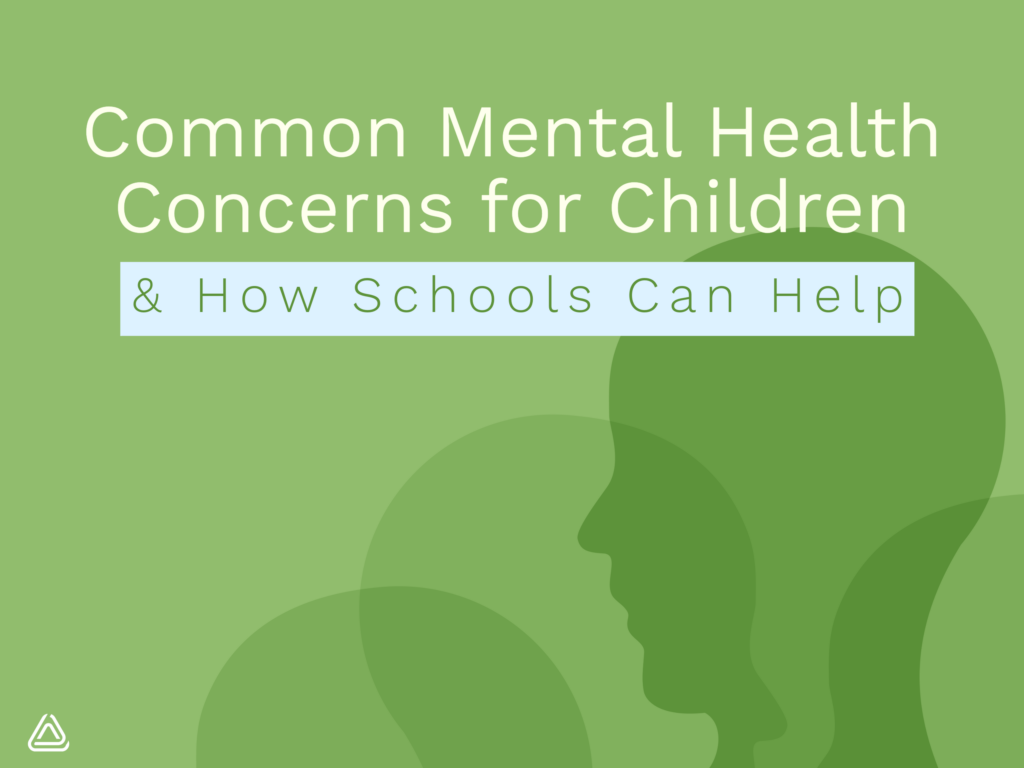Nearly all children are sad, anxious, or irritable at times, and many can find it challenging to sit still, pay attention, or interact with others. In most cases, these are just typical developmental phases. However, such behaviors may also indicate a more serious problem in some children.
Common mental health issues in children include:
- Anxiety Disorders: These can manifest as excessive worry, fear, or nervousness, often about everyday situations such as school or social interactions. Common types include generalized anxiety disorder, separation anxiety disorder, and social anxiety disorder.
- Depressive Disorders: Children can experience symptoms of depression, including persistent sadness, irritability, loss of interest in activities, changes in sleep and appetite, and difficulty concentrating.
- Attention-Deficit/Hyperactivity Disorder (ADHD): Children with ADHD may have trouble paying attention, be overly active, and struggle with impulse control, impacting their everyday functioning and learning.
- Behavioral Disorders: Conditions such as Oppositional Defiant Disorder (ODD) and Conduct Disorder (CD) can lead to disruptive, defiant, and antisocial behavior.
- Autism Spectrum Disorder (ASD): ASD affects communication, behavior, and social interaction. Symptoms can vary widely, and early diagnosis and intervention can significantly help.
- Obsessive-Compulsive Disorder (OCD): Children with OCD may experience unwanted and intrusive thoughts (obsessions) and feel compelled to perform certain behaviors (compulsions) to reduce anxiety.
- Post-Traumatic Stress Disorder (PTSD): Children who have experienced or witnessed traumatic events may develop PTSD, experiencing symptoms such as flashbacks, avoidance, and increased arousal.
- Learning Disabilities: Conditions such as dyslexia and dyscalculia can cause difficulties with reading, writing, or math, affecting academic performance and self-esteem.
- Social Communication Disorders: These involve challenges in using verbal and nonverbal communication effectively, impacting social interactions and relationships.
- Mood Disorders: Apart from depression, children can also experience mood swings and irritability associated with conditions like bipolar disorder.
How can I tell if a child is struggling?
In younger children, you may notice the following signs:
- They are having more frequent tantrums or are irritable much of the time
- Often seem fearful or worried
- Complain about frequent stomachaches or headaches with no known medical cause
- Are in constant motion and cannot sit quietly (except when they are engaged in an activity they enjoy, such as watching videos or playing video games)
- Sleep too much or too little, have frequent nightmares, or seem sleepy during the day
- Are not interested in playing with other children or have difficulty making friends
- Struggle academically or have experienced a recent decline in grades
Older children may exhibit the following:
- A loss of interest in things that they used to enjoy
- Low energy
- Sleep too much or too little or seem sleepy throughout the day
- Periods of highly elevated energy and activity
- Spend more and more time alone and avoid social activities with friends or family
- Diet or exercise excessively or fear gaining weight
- Engage in self-harm behaviors (such as cutting or burning their skin)
- Smoke, drink, or use drugs
- Engage in risky or destructive behavior alone or with friends
- Have thoughts of suicide
- Say that they think someone is trying to control their mind or that they hear things that other people cannot hear
Early treatment can help children manage their symptoms and support their social and emotional well-being. Many adults reflect on how mental disorders affected their childhood and wish they had received help sooner. If you suspect a child is struggling, seeking help from a mental health professional is recommended.
How can schools support a child’s mental health?
Schools play a critical role in supporting children with mental health issues. Here are several ways they can do this:
- Awareness and Training: Educate staff (teachers, counselors, and administrators) about mental health issues, signs of distress, and how to provide appropriate support.
- Create a Supportive Environment: Foster a school culture that promotes mental well-being through positive relationships, inclusivity, and respect. Encourage open discussions about mental health to reduce stigma.
- Access to Counseling Services: Provide access to professionals who can offer support, counseling, and intervention for students dealing with mental health issues.
- Screening and Identification: Implement regular mental health screenings for students to identify those who may need additional support. Early identification can lead to timely interventions.
- Flexible Policies: Establish policies that allow for flexibility in attendance, deadlines, and testing accommodations for students struggling with mental health issues.
- Social-Emotional Learning (SEL): Include SEL programs in the curriculum to help students develop skills such as emotional regulation, resilience, and empathy, which can enhance their mental health.
- Parental Engagement: Involve parents in awareness and education programs about mental health to empower them to support their children’s well-being at home.
- Crisis Intervention Plans: Develop clear protocols for responding to mental health crises, ensuring that staff know how to act in emergency situations.
- Encourage Healthy Activities: Promote activities such as sports, art, music, and mindfulness programs that can enhance students’ mental wellness and provide constructive outlets for stress.
- Breaks and Downtime: Allow for scheduled breaks or quiet time during the day to help students recharge and manage stress.
By implementing these strategies, schools can help create an environment that supports the mental health and well-being of their students, encouraging them to thrive academically, socially, and emotionally.
Where can I find additional resources?
The following organizations and agencies have information on symptoms, treatments, and support for childhood mental disorders.
- Centers for Disease Control and Prevention, Children’s Mental Health
- Child Mind Institute
- Mental Health America
- The Individuals with Disabilities Education Act consolidates information about how states and public agencies provide early intervention, special education, and related services for infants, toddlers, children, and youth with disabilities.
- National Alliance on Mental Illness
- National Institute of Mental Health

Reference: National Institute of Mental Health


